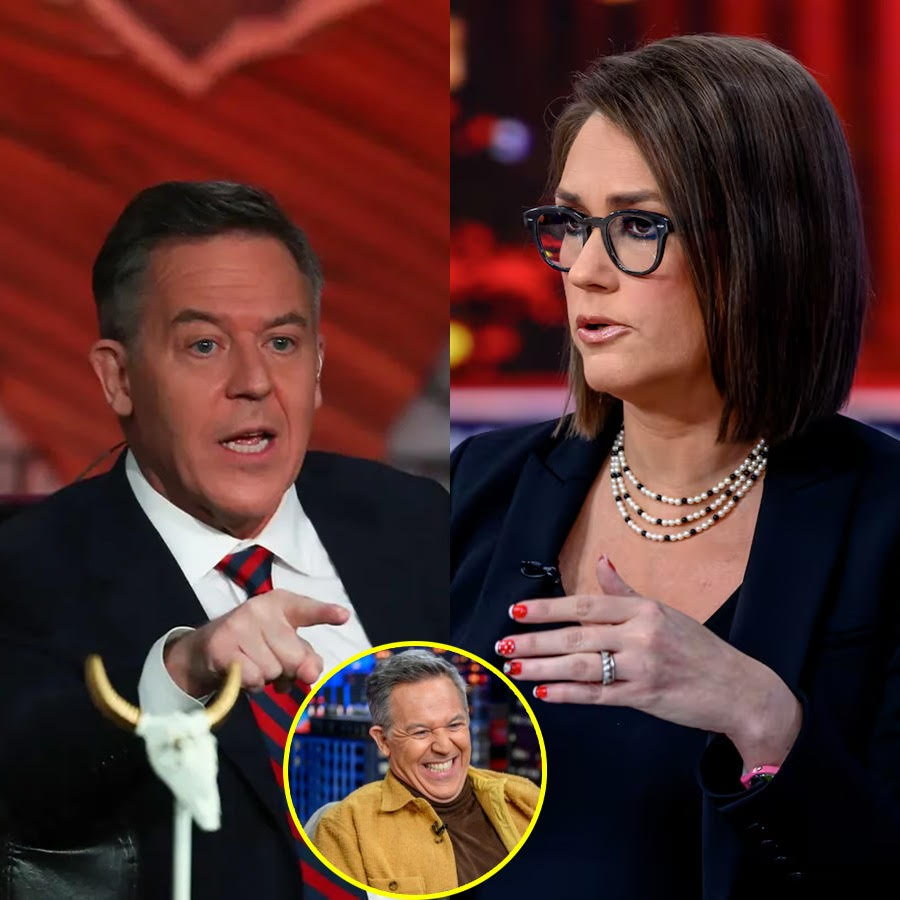“BREAKING: Jessica Tarlov Removed from Set by Fox Producers After Explosive Argument with Greg Gutfeld—Details of the On-Air Confrontation That You Have to See!”

In the fast-paced world of cable news, where opinions clash and personalities often collide, a recent altercation between Jessica Tarlov and Greg Gutfeld has taken the industry by storm. The shocking aftermath—Tarlov’s removal from the set by Fox producers—has sparked widespread discussion, highlighting the volatile nature of political discourse and raising questions about the boundaries of professional conduct in broadcast journalism.
Jessica Tarlov, a prominent political analyst known for her liberal viewpoints, frequently represents progressive perspectives on Fox News. On the other hand, Greg Gutfeld, famous for his bold humor and staunchly conservative stance, has built a successful career by challenging conventional wisdom and stirring strong reactions. The tension between their differing ideologies has often led to fiery debates on air, but their most recent exchange escalated in a way no one anticipated.
The incident occurred during a live broadcast of The Five, a popular Fox News show that features a rotating panel discussing current events. According to reports, Tarlov and Gutfeld were in the middle of a heated debate when Gutfeld made a particularly provocative comment that struck a nerve with Tarlov. In response, she forcefully disagreed, which quickly spiraled into a verbal clash that became impossible to control.
With tensions rising, producers, concerned about the atmosphere on set, made the decision to remove Tarlov from the discussion. This move underscores the precarious balance that news networks must strike between fostering lively debate and maintaining professionalism. While passionate exchanges are a staple of cable news, there are lines that must be respected to avoid a complete breakdown in decorum.
The incident has sparked a range of reactions. Tarlov’s supporters argue that her removal was unjust and reflects a larger issue within the network, one that suppresses dissenting views to protect a particular narrative. On the other hand, Gutfeld’s defenders contend that his bold, provocative style is essential for engaging viewers and challenging conventional thinking.
This confrontation brings into question the nature of political debates in today’s increasingly polarized climate. As civil discourse continues to decline, the role of producers in managing these exchanges becomes more critical. Should networks allow more room for unpredictability, or is it the responsibility of producers to intervene when discussions turn heated?
For Tarlov, the fallout from this incident could have long-term effects on her career. As a public figure, she now faces both praise and criticism, which often accompany such high-profile disputes. Whether this event will alter her future role on Fox News or affect her approach to future debates remains to be seen.
In conclusion, the fiery exchange between Jessica Tarlov and Greg Gutfeld illustrates the deep divisions that characterize political discussions today. While passionate debates are crucial to the media landscape, this incident emphasizes the need for networks to maintain professionalism in an increasingly unpredictable environment. As viewers, we must consider the implications of such incidents and what they mean for the future of political commentary on television.